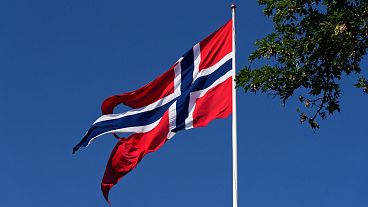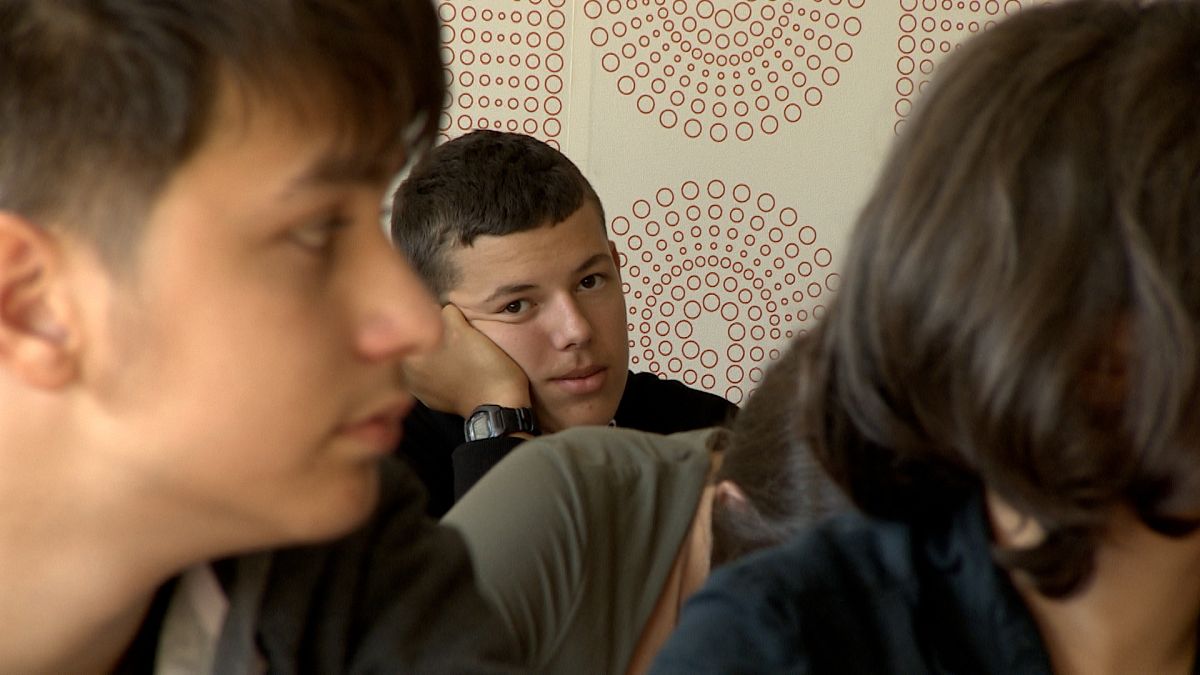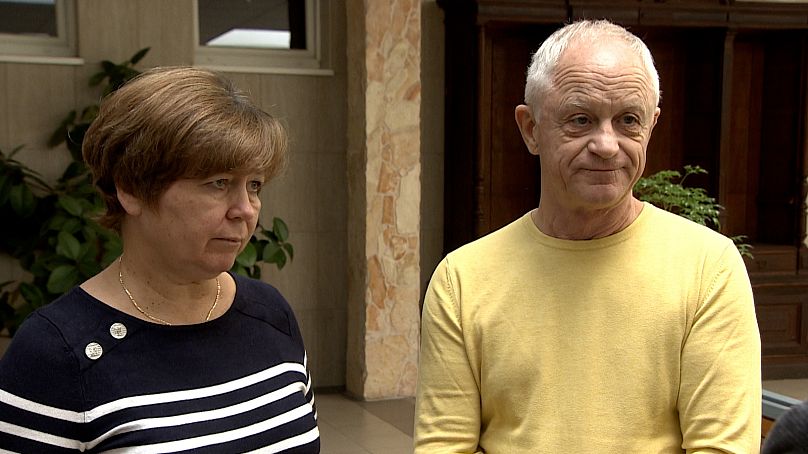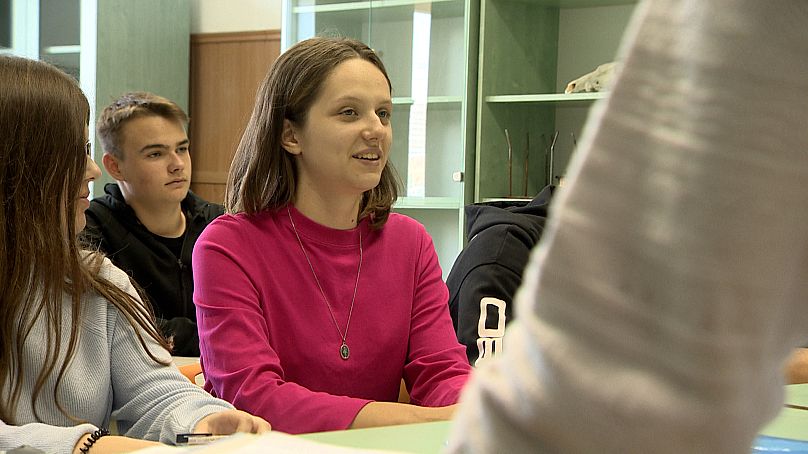The Ukrainian-Hungarian bilingual school in Budapest, which opened in September, integrates multiculturalism and psychological support into its curriculum.
Europe's only bilingual school for Ukrainian refugee children opened in September in the Hungarian capital Budapest, offering Ukrainian and Hungarian certificates through the House of Ukrainian Traditions.
The school's founders worked for two years to get the facility accredited and off the ground, with the project given the final seal of approval at a recent meeting between Hungarian Prime Minister Viktor Orbán and Ukrainian President Volodymyr Zelenskyy.
The Ukrainian House of Traditions is run by Ukrainian couple Serhiy Beskorovany and his wife Olenna. Serhiy and Olenna told Euronews they noticed Ukrainian students enrolled at Hungarian schools not socially integrated. They did not learn the language, with their grades suffering, the couple explained.
In addition to language difficulties, the situation is further complicated due to curricula differences. Under the Hungarian system, the same topics are repeated with increasing complexity, while the Ukrainian model teaches blocks in a linear sequence, Olenna said. By grade 12, the curricula of both systems become similar, but the path to graduation becomes progressively more challenging.
Olenna said many Ukrainians view their situation in Hungary as temporary and instead opt for online-education provided by the Ukrainian state, meaning many are not integrating into their new lives in Hungary.
At the Ukrainian House of Traditions, the couple has noticed that Ukrainian children are picking up the local language more effectively because they are not alone in their struggles and also benefit from psychological support.
Panic attack when a helicopter passes over the school
Olenna said students enrolled as part of Ukrainian distance education have spent four years away from traditional classrooms. This began with the start of the COVID-19 pandemic and the 2022 Russian invasion of Ukraine.
Many of the Ukrainian refugee children are severely traumatised, she said.
"The children who came from eastern Ukraine have had their houses bombed and therefore have nowhere to return to," Olenna says, reflecting on the traumatic experiences students have endured.
"The third category is children who come from Russian-occupied territories. These children have been starved and abused, they can suffer severe anxiety if their food is a little late, and they need to be handled with special care to return them to a normal childhood."
At the school, two psychologists address these traumas—one specializing in primary school children and the other in older students. Moreover, refugee Ukrainian teachers also offer support, as their personal experiences with similar challenges enable them to provide deep understanding and empathy.
Hungarian state helps but does not maintain the school
While the Hungarian state covers the teachers' salaries, the Ukrainian House of Traditions, which operates the school, manages all other expenses — such as maintaining the building and purchasing teaching supplies — with support from charities, Ukrainian companies, and international aid organisations.
The school employs about 30 teachers, the majority of whom are native Ukrainian speakers.
A backpack with four sets of clothes
Fifteen-year-old Veronika arrived in Hungary in the spring of 2022 with just a small backpack, four sets of clothes, and her sister, but without her parents. A cheerful, lively, and diligent teenager, she has clearly made significant strides in adapting to her new environment. She has attended four different schools, noting, "They weren’t bad, but the atmosphere here is completely different."
"It was a difficult time, but I feel I've grown up, I've become stronger, I've learned to control my emotions," she says about the difficulties of adjusting.
She believes that those trying to pursue Ukrainian online education independently in Budapest will struggle with communication, both in Hungarian and increasingly in their native language, making adaptation more challenging. She has grown fond of Hungary and would like to continue her studies here.
The Hungarian-Ukrainian Bilingual School and Gymnasium in Chepel currently enrolls 400 students.














